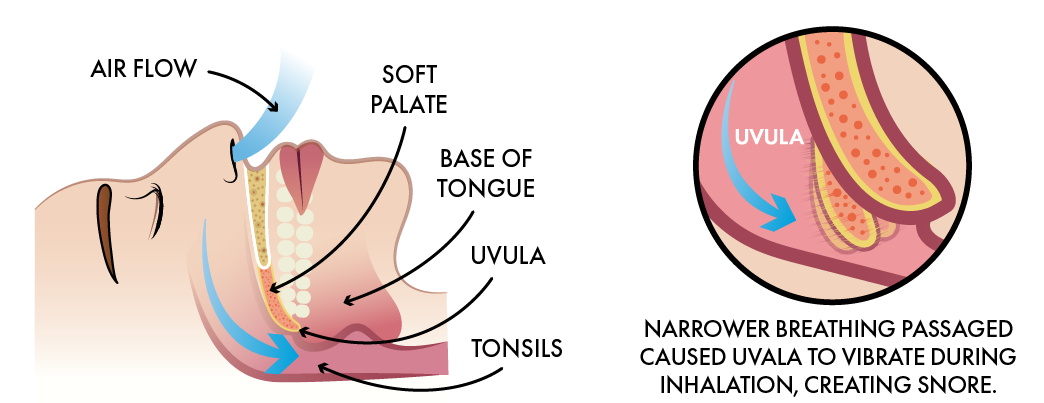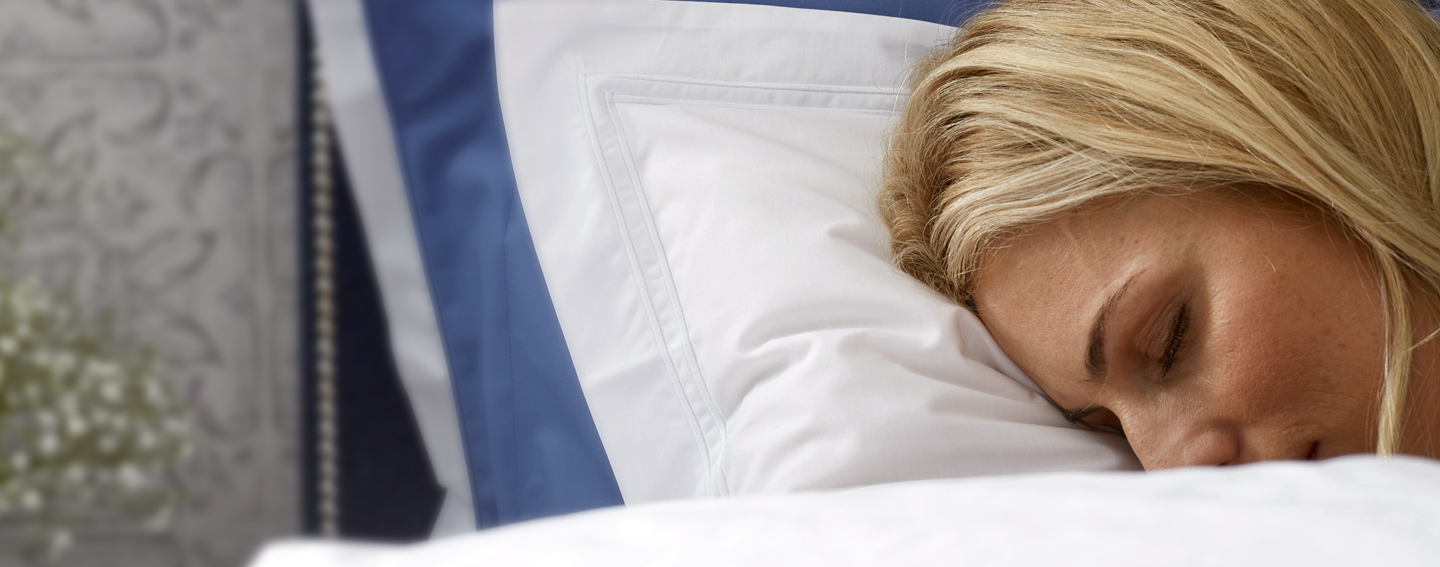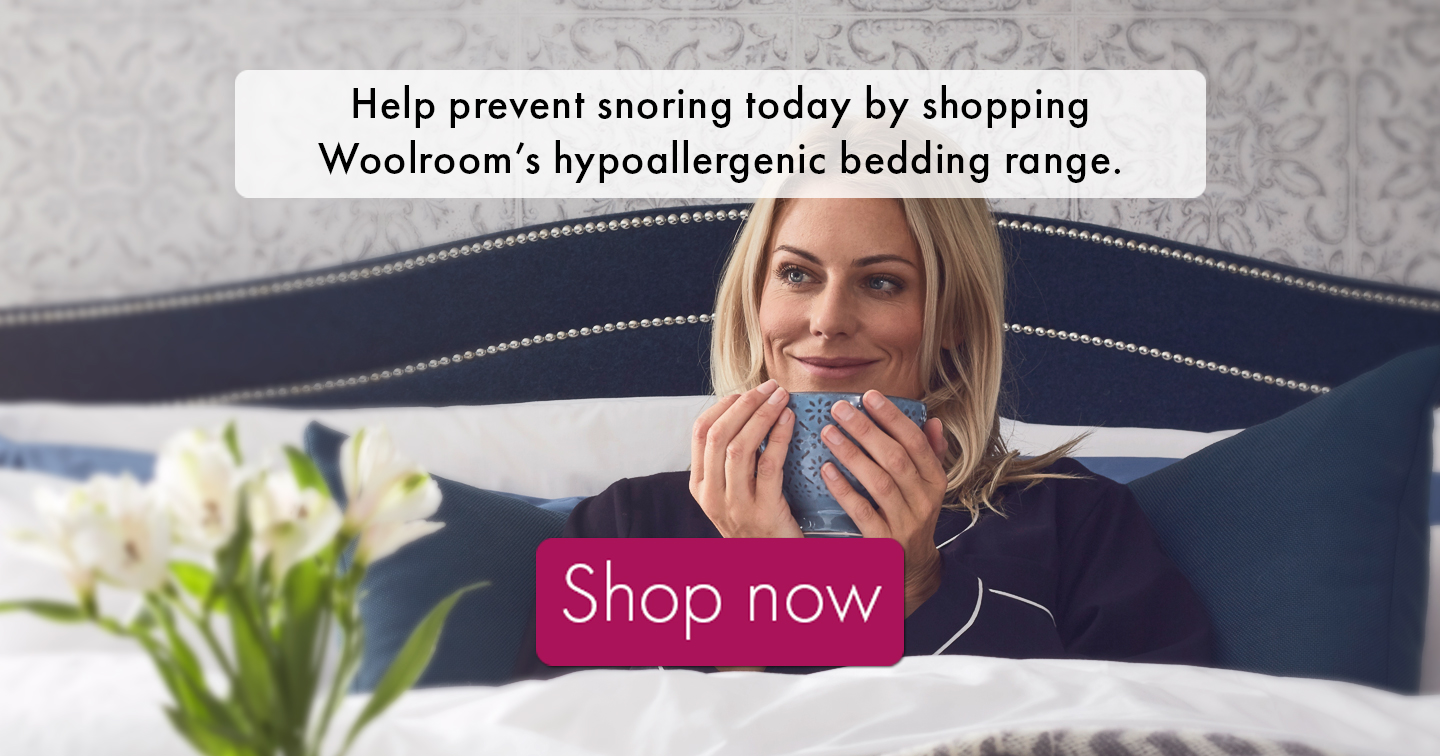Tired of waking yourself up with loud snoring in the middle of the night? Or maybe your partner is sick of sleepless nights with the pillow over their ears? Finding out the cause of your snoring may well be the solution that you both need for that much-needed good night’s sleep.
What is snoring?
Snoring is common in people of all ages. Snoring is caused when air is unable to pass freely through your air passages as you sleep, resulting in the loud noise that often keeps others around you awake. Snoring can be due to genetics – having too much throat and nasal tissue that is prone to vibrate – however, it can also be caused by other issues which can often have a solution.

Why am I snoring?
Snoring can be caused by environmental factors, lifestyle habits and medical issues – but which one is causing you to snore? Here are some of the most common reasons for snoring:
- Sleep posture: Many people find that they’re prone to snoring when lying flat on their back. If you do find that you snore when sleeping on your side or front too, it’s worth speaking with your GP about other possible underlying causes of your snoring.
- Being overweight: Fatty tissue and a lack of muscle tone around your neck and throat can sometimes be the cause of snoring. The fatty tissue squeezes the airways, preventing air from passing freely – often waking you up in the process.
- Alcohol/smoking: Alcohol relaxes your muscles more than usual during sleep, meaning the back of your throat may close in as you breathe, causing you to snore. Even if you’re usually a non-snorer, a tipple or two before bed can be the reason for loud snoring which can keep others around you awake. Smoking and some types of medication can also be reasons for snoring as they can increase muscle relaxation.
- Sleep apnoea: Snoring could also be an indicator of sleep apnoea – a serious condition where your breathing is briefly interrupted while you snooze. Sleep apnoea can also cause daytime sleepiness, affecting not only your sleep but your work and social life, too. If you suspect that your snoring is due to sleep apnoea, it’s important to speak with your GP about possible treatments.
- Night-time allergies: Did you know there’s a connection between snoring and allergies? Allergies such as allergic rhinitis can disrupt the airflow between your nose and throat, causing a snoring noise. These allergies can often be worse at night, due to exposure to allergens such as dust mites and fungal spores which can colonise synthetic bedding.

How to ease snoring
So how to reduce snoring during sleep? Once you’ve identified the cause of your snoring, you can look at ways to ease the symptoms. Consider the following tips as a starting point:
- Choose hypoallergenic bedding: Dust mites and fungal spores can’t survive in wool bedding. This is because this natural material is cool and dry, rather than the hot and humid environment these allergens need. What’s more, because wool is naturally hypoallergenic, there’s no need to freeze-wash or heat-wash your bedding to battle against mites.
- Sleeping position: If you snore when lying on your back, changing your sleeping position could be the simple solution to a better night’s sleep. Consider whether changing your mattress or pillows could help you to stay in a side sleeping position.
- Cutting down on alcohol and smoking: Drinking alcohol and smoking, particularly in the hours just before bed, can irritate the airways, causing snoring. Of course, cutting down on these activities can have a positive impact on your overall health, but when it comes to snoring, avoiding them in the evening is particularly important.
- Regular exercise: This can often be the snoring solution you’re searching for. Maintaining a healthy weight through regular exercise and a balanced diet can be a way to avoid snoring while sleeping.
- Seek sleep apnoea advice: If you are diagnosed with sleep apnoea, the NHS suggests that continuous positive airways pressure (CPAP) is likely to be prescribed. This involves wearing a mask over your nose and mouth while a machine regulates the pressure of air you breathe in. While controlling your sleep apnoea, this suppresses the snoring and improves your sleep quality overall. If you think you or your partner is suffering with sleep apnoea, speak with your GP or practice nurse about your symptoms.
Looking for more advice on how to sleep better? Head to our sleep health and advice hub for expert advice on everything from night sweats to relationships and sleep.



